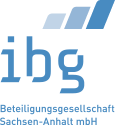EUCODIS Bioscience GmbH
ProBioGen And Eucodis Sign Agreement to Commercialize C-LiNK,
A Novel Antibody Drug Conjugation Technology
Novel Enzymatic, 1-Step Site-Specific Protein Conjugation Technology for ADC Production
Berlin, Germany, and Vienna, Austria, April 19th:
ProBioGen, a leading specialist for contract development and manufacturing of complex glycoproteins and Eucodis Bioscience, an expert in enzyme engineering, today jointly announced the signature of an exclusive license agreement on C-LiNK (CTAT), an innovative, site-specific ADC conjugation technology. Under the agreement ProBioGen gains exclusive rights to commercialize Eucodis’ enzymatic C-terminal linking technology, and to offer it, together with its antibody development services, royalty-free to ADC-developing parties.
ProBioGen’s CEO, Dr. Wieland Wolf, commented: “This agreement is an excellent match between Eucodis’ enzyme engineering expertise and ProBioGen’s therapeutic proteinoptimizing technologies and we look much forward to position C-LiNK and our contract manufacturing services right in the middle of the hot ADC field”.
Dr. Karl Hübler, CEO of Eucodis explained: “We see a huge potential for C-LiNK in Biopharma, especially in ADC development, but our expertise is engineering enzymes. Therefore, by teaming up with ProBioGen, our ADC conjugation technology will certainly get a much wider and quicker access to the community of therapeutic protein developing companies and we are convinced that our agreement with ProBioGen will result in fruitful collaborations within the industry.”
ProBioGen’s Chief Scientific Officer, Dr. Volker Sandig, added: “This innovative ADC technology, which efficiently attaches any payload enzymatically via a pure peptide linker - as short as two amino acids -, blends perfectly into our portfolio of robust cell line/product engineering technologies and manufacturing capabilities. The 1-step C-LiNK coupling technology will further open up the development space for ADCs and represents a competitive alternative to other Antibody Drug Conjugate Technologies.”
Dr. Jan Modregger, Eucodis’ Head of R&D stated: “Based on a trypsin variant engineered to enforce formation of a new peptide bond, our ADC conjugation technology links toxins or other molecules to the C-terminus of either antibody chain, without disturbing the native antibody structure. The outcome is a defined Drug Antibody Ratio at high yield with low enzyme requirements and it offers on top the flexibility to add different payloads to separate sites in future ADCs.”
###

